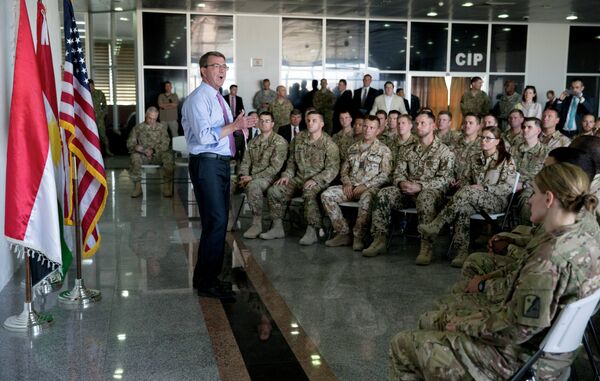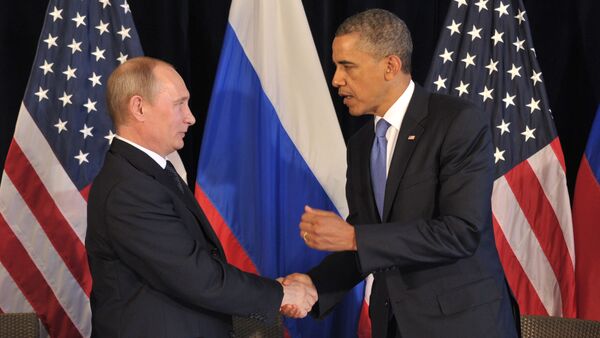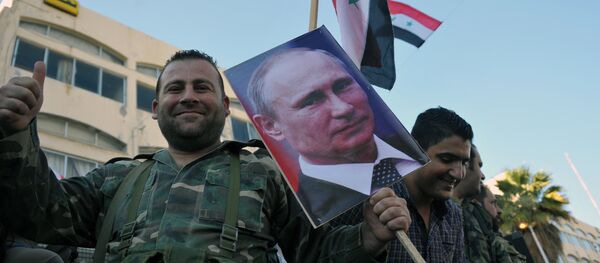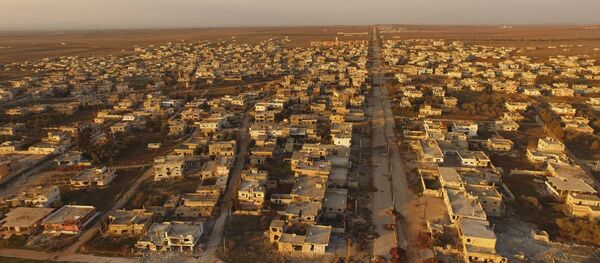The ceasefire agreement offers hope for the millions suffering in Syria and has the potential to end the fighting except against Daesh and other terrorist groups, since the deal specifies that both the Russia-led coalition and the US-led coalition will continue to attack the so-called Islamic State and other terrorists, the American academic said.
"But the agreement is of enormous hope first of all, to be humanistic about it, it will open humanitarian corridors to Syrians who desperately need medicine, and food, and water… it will slow the refugee migration out of Syria, and possibly to Europe, and if it succeeds (because this is very much a Russian-American and American-Russian act of diplomacy) [it] could generate enough cooperation to spread elsewhere, even to Ukraine," Professor Cohen underscored.
At the same time, if it gets ugly, it could lead Moscow and Washington to the new Cold War, he stressed, adding, however, that it is an extreme outcome.
"There is no agency to monitor violations of the ceasefire. Both sides say they are going to create those agencies," the US academic noted.
"But there are scores of groups fighting in Syria other than the Islamic State [Daesh] and the Syrian Army, whose affiliations and sponsorship are murky. And they may or may not care to abide by this," Professor Cohen continued.
"There is tremendous political opposition to this ceasefire here in the United States," he added.

The American academic pointed out that it is documented that Secretary of Defense Ashton Carter was against the Syrian ceasefire brokered by US Secretary of State John Kerry with Russia's leaders.
"In fact he [Carter] is against any cooperation with the Russians," the professor remarked.
However, whether Ash Carter likes it or not, the US-Russian deal envisages close cooperation and sharing of intelligence.
"It was the last active American-Russian cooperation. After that Ukraine came and the Cold War came and there has really been no substantial cooperation… But Putin [said] that 'we've done that before and achieved great things: we abolished Assad's… chemical weapons and prevented an American attack on Syria'," the US academic noted, stressing that for Russia the Syrian ceasefire is a very big deal.
Regardless of the doubts and concerns surrounding the implementation of the agreement, the Syrian ceasefire is largely regarded as a diplomatic victory for both sides and especially for Russia.
"The recent agreement between the US and Russia really solves nothing, it does not even end the war, and both sides are expressing a great deal of caution about its future implementation. And yet, this is a huge victory for Russia. While it is too early to say that 'the Russians won in Syria,' I think that it is now fair to say that the Russian position on Syria has won," The Saker, an anonymous American military analyst, wrote in his analysis for The Unz Review.
Pami Aalto, the director of the Jean Monnet Centre of Excellence on European Politics and European-Russian Relations at the University of Tampere, echoed the stance in his exclusive interview with Radio Sputnik, saying that the agreement is a "very positive development" that shows that Moscow and Washington can "agree on something," despite everything.
It's a "diplomatic victory for both sides," the scholar stressed.




